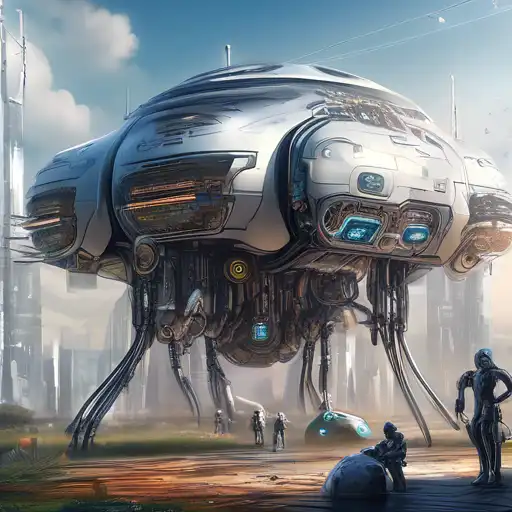Introduction to Artificial Intelligence's Evolution
Artificial Intelligence (AI) has transitioned from a futuristic concept to a cornerstone of modern technology. Today, we stand on the brink of a new era where AI's potential is being unlocked in unprecedented ways. This article delves into the current state of AI, exploring its advancements, challenges, and what the future holds.
The Current State of AI
AI today is more than just algorithms and data; it's about creating systems that can learn, adapt, and potentially outperform human intelligence in specific tasks. From machine learning to natural language processing, AI is reshaping industries, including healthcare, finance, and entertainment.
Advancements in Machine Learning
Machine learning, a subset of AI, has seen remarkable progress. Deep learning techniques have enabled computers to recognize patterns and make decisions with minimal human intervention. This has led to breakthroughs in image and speech recognition, transforming how we interact with technology.
AI in Everyday Life
AI's integration into daily life is undeniable. Virtual assistants, recommendation systems, and autonomous vehicles are just a few examples of AI's pervasive influence. These technologies not only enhance convenience but also improve efficiency and safety.
Challenges Facing AI Development
Despite its advancements, AI faces significant hurdles. Ethical concerns, data privacy issues, and the potential for job displacement are critical challenges that need addressing. Ensuring AI's benefits are distributed equitably remains a paramount concern.
Ethical Considerations
The development of AI must be guided by ethical principles to prevent misuse and ensure it serves humanity's best interests. Issues like bias in AI algorithms and the need for transparency are at the forefront of discussions among technologists and policymakers.
The Future of AI
The future of AI is brimming with possibilities. Innovations like quantum computing and AI-driven healthcare promise to revolutionize our world. However, realizing this potential requires collaboration across disciplines to overcome technical and ethical barriers.
Quantum Computing and AI
Quantum computing could exponentially increase AI's processing power, enabling solutions to problems currently deemed unsolvable. This synergy between quantum computing and AI could unlock new frontiers in science and technology.
AI in Healthcare
AI's application in healthcare offers hope for groundbreaking treatments and diagnostics. From personalized medicine to predictive analytics, AI has the potential to save lives and reduce healthcare costs significantly.
Conclusion
As we explore the future of artificial intelligence today, it's clear that AI's journey is just beginning. With continued innovation and responsible stewardship, AI can fulfill its promise as a force for good, transforming our world in ways we are only starting to imagine.
